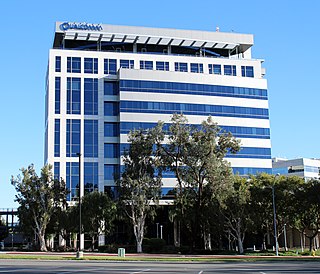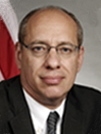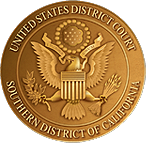Related Research Articles

Qualcomm Incorporated is an American multinational corporation headquartered in San Diego, California, and incorporated in Delaware. It creates semiconductors, software, and services related to wireless technology. It owns patents critical to the 5G, 4G, CDMA2000, TD-SCDMA and WCDMA mobile communications standards.
Rambus Inc. is an American technology company that designs, develops and licenses chip interface technologies and architectures that are used in digital electronics products. The company, founded in 1990, is well known for inventing RDRAM and for its intellectual property-based litigation following the introduction of DDR-SDRAM memory.
A submarine patent is a patent whose issuance and publication are intentionally delayed by the applicant for a long time, which can be several years, or a decade. This strategy requires a patent system where, first, patent applications are not published, and, second, patent term is measured from grant date, not from priority or filing date. In the United States, patent applications filed before November 2000 were not published and remained secret until they were granted. Analogous to a submarine, submarine patents could remain "under water" for long periods until they "emerged", surprising the relevant market. Persons or companies making use of submarine patents are sometimes referred to as patent pirates.
An essential patent or standard-essential patent (SEP) is a patent that claims an invention that must be used to comply with a technical standard. Standard-setting organizations (SSOs) normally require their members to agree to license their essential patents on fair, reasonable and non-discriminatory terms. Determining which patents are essential to a particular standard can be complex.
Reasonable and non-discriminatory (RAND) terms, also known as fair, reasonable, and non-discriminatory (FRAND) terms, denote a voluntary licensing commitment that standards organizations often request from the owner of an intellectual property right that is, or may become, essential to practice a technical standard. Put differently, a F/RAND commitment is a voluntary agreement between the standard-setting organization and the holder of standard-essential patents. U.S. courts, as well as courts in other jurisdictions, have found that, in appropriate circumstances, the implementer of a standard—that is, a firm or entity that uses a standard to render a service or manufacture a product—is an intended third-party beneficiary of the FRAND agreement, and, as such, is entitled to certain rights conferred by that agreement.
In United States patent law, patent misuse is a patent holder's use of a patent to restrain trade beyond enforcing the exclusive rights that a lawfully obtained patent provides. If a court finds that a patent holder committed patent misuse, the court may rule that the patent holder has lost the right to enforce the patent. Patent misuse that restrains economic competition substantially can also violate United States antitrust law.
In patent law, a patent pool is a consortium of at least two companies agreeing to cross-license patents relating to a particular technology. The creation of a patent pool can save patentees and licensees time and money, and, in case of blocking patents, it may also be the only reasonable method for making the invention available to the public. Competition law issues are usually important when a large consortium is formed.
The Institute of Electrical and Electronics Engineers Standards Association is an operating unit within IEEE that develops global standards in a broad range of industries, including: power and energy, artificial intelligence systems, internet of things, consumer technology and consumer electronics, biomedical and health care, learning technology, information technology and robotics, telecommunication, automotive, transportation, home automation, nanotechnology, information assurance, emerging technologies, and many more.

Jonathan David Leibowitz is an American attorney who served under President Barack Obama as Chair of the Federal Trade Commission (FTC) from 2009 to 2013. Leibowitz was appointed to the commission in 2004, and resigned in 2013. During Leibowitz's tenure, the FTC brought privacy cases against Google, Facebook and others for violating consumer privacy, as well as enforcement against "pay-for-delay" deals in which pharmaceutical companies paid competitors to stay out of the market. Prior to joining the FTC, Leibowitz was Vice President for Congressional Affairs from 2000 to 2004 of the MPAA.
Eastman Kodak Co. v. Image Technical Servs., Inc., 504 U.S. 451 (1992), is a 1992 Supreme Court decision in which the Court held that even though an equipment manufacturer lacked significant market power in the primary market for its equipment—copier-duplicators and other imaging equipment—nonetheless, it could have sufficient market power in the secondary aftermarket for repair parts to be liable under the antitrust laws for its exclusionary conduct in the aftermarket. The reason was that it was possible that, once customers were committed to the particular brand by having purchased a unit, they were "locked in" and no longer had any realistic alternative to turn to for repair parts.

Qualcomm Inc. v. Broadcom Corp.Qualcomm I - Qualcomm IV, was a series of US Federal cases between Qualcomm Inc. and Broadcom Corp. involving patent infringement and the duty to disclose patents to the JVT Standard Setting Organization and industry misconduct. Qualcomm held a relevant patent, but neglected to report it to the Standard Setting Agency until after it had made a ruling, and thus the point in question is if Qualcomm had waived its right to enforce its patent or not. The first of the series began in 2007 and ended in 2010.

Microsoft Corp. v. Motorola Inc., 696 F.3d 872 was a United States Court of Appeals for the Ninth Circuit case about Reasonable and Non-Discriminatory (RAND) Licensing and foreign anti-suit injunction.
FTC v. Actavis, Inc., 570 U.S. 136 (2013), was a United States Supreme Court decision in which the Court held that the FTC could make an antitrust challenge under the rule of reason against a so-called pay-for-delay agreement, also referred to as a reverse payment patent settlement. Such an agreement is one in which a drug patentee pays another company, ordinarily a generic drug manufacturer, to stay out of the market, thus avoiding generic competition and a challenge to patent validity. The FTC sought to establish a rule that such agreements were presumptively illegal, but the Court ruled only that the FTC could bring a case under more general antitrust principles permitting a defendant to assert justifications for its actions under the rule of reason.
Kimble v. Marvel Entertainment, LLC, 576 U.S. 446 (2015), is a significant decision of the United States Supreme Court for several reasons. One is that the Court turned back a considerable amount of academic criticism of both the patent misuse doctrine as developed by the Supreme Court and the particular legal principle at issue in the case. Another is that the Court firmly rejected efforts to assimilate the patent misuse doctrine to antitrust law and explained in some detail the different policies at work in the two bodies of law. Finally, the majority and dissenting opinions informatively articulate two opposing views of the proper role of the doctrine of stare decisis in US law.
Standard Oil Co. v. United States, 337 U.S. 293 (1949), more commonly referred to as the Standard Stations case to distinguish it from a 1911 case with the same caption, Standard Oil Co. v. United States, is a 1947 decision of the United States Supreme Court in which requirements contracts for gasoline stations were held to violate section 3 of the Clayton Act. That statute prohibits selling goods on the condition that the customer must not deal in the goods of a competitor of the seller, such as in a requirements contract, if the effect is to "substantially lessen competition" or "tend to create a monopoly." The doctrine of this case has been referred to as "quantitative substantiality," and its exact contours were unsettled and controversial for many years until the Supreme Court authoritatively explained it in United States v. Philadelphia National Bank.
United States v. Singer Mfg. Co., 374 U.S. 174 (1963), was a 1963 decision of the Supreme Court, holding that the defendant Singer violated the antitrust laws by conspiring with two European competitors to exclude Japanese sewing machine competition from the US market. Singer effectuated the conspiracy by agreeing with the two European competitors to broaden US patent rights and concentrate them under Sanger's control in order to more effectively exclude the Japanese firms. A further aspect of the conspiracy was to fraudulently procure a US patent and use it as an exclusionary tool. This was the first Supreme Court decision holding that exclusionary use of a fraudulently procured patent could be an element supporting an antitrust claim.
Brulotte v. Thys Co., 379 U.S. 29 (1964), was a Supreme Court of the United States decision holding that a contract calling for payment of patent royalties after the expiration of the licensed patent was misuse of the patent right and unenforceable under the Supremacy Clause, state contract law notwithstanding. The decision was widely subjected to academic criticism but the Supreme Court has rejected that criticism and reaffirmed the Brulotte decision in Kimble v. Marvel Entertainment, LLC.
Princo Corp. v. ITC, 616 F.3d 1318 was a 2010 decision of the United States Court of Appeals for the Federal Circuit, that sought to narrow the defense of patent misuse to claims for patent infringement. Princo held that a party asserting the defense of patent misuse, absent a case of so-called per se misuse, must prove both "leveraging" of the patent being enforced against it and a substantial anticompetitive effect outside the legitimate scope of that patent right. In so ruling, the court emphasized that the misuse alleged must involve the patent in suit, not another patent.
Hartford-Empire Co. v. United States, 323 U.S. 386 (1945), was a patent-antitrust case that the Government brought against a cartel in the glass container industry. The cartel, among other things, divided the fields of manufacture of glass containers, first, into blown glass and pressed glass, which was subdivided into: products made under the suction process, milk bottles, and fruit jars. The trial court found the cartel violative of the antitrust laws and the Supreme Court agreed that the market division and related conduct were illegal. The trial court required royalty-free licensing of present patents and reasonable royalty licensing of future patents. A divided Supreme Court reversed the requirement for royalty-free licensing as "confiscatory," but sustained the requirement for reasonable royalty licensing of the patents.
Federal Trade Commission v. Qualcomm Incorporated was a noted American antitrust case, in which the Federal Trade Commission (FTC) accused Qualcomm's licensing agreements as anticompetitive, mainly because their practices excluded competition and harmed competitors in the modern chip market, which according to the FTC, violated both Section 1 and Section 2 of the Sherman Act. On May 21, 2019, the United States District Court for the Northern District of California ruled in favor of the plaintiff, the FTC, by alleging that Qualcomm had indeed violated the federal antitrust laws by (1) refusing to license its patents to direct competitors, in its relevant product market (2) by placing an extra fee on rival chip sales through its licensing of its patent, and (3) by entering in an exclusive business deal with Apple from 2011 to 2013. The case was seen as controversial when the United States Court of Appeals for the Ninth Circuit decided to unanimously reverse the decision of the district court by arguing that the FTC failed to prove through its rule of reason analysis that Qualcomm's policies have a considerable negative effect towards the consumer in the CDMA and cellular chips market.
References
- 1 2 "Telecom standards face patent ambush threat". ZDNet. 2005-06-15. Archived from the original on 2007-09-30. Retrieved 2007-08-30.
- 1 2 "Antitrust: Commission confirms sending a Statement of Objections to Rambus". European Commission. 2007-08-23. Retrieved 2007-08-30.
- ↑ See IEEE Standards Association
- ↑ Matt Whipp (2005-12-12). "EC thwarts 'patent ambush' tactics". PC Pro. Archived from the original on 2013-12-02. Retrieved 2013-11-23.
- ↑ See, for example, FTC Challenges Patent Holder's Refusal to Meet Commitment to License Patents Covering 'Ethernet' Standard Used in Virtually All Personal Computers in U.S. (FTC press release about its suit against N-Data, 23 Jan. 2008); FTC Charges Unocal with Anticompetitive Conduct Related to Reformulated Gasoline: Complaint Alleges Company Gained Monopoly Power by Defrauding the California Air Resources Board and Industry Groups During Phase 2 Gasoline Rulemaking Archived 2009-01-19 at the Wayback Machine (FTC press release about its suit against Union Oil Co., 4 March 2003). See also Broadcom Corp. v. Qualcomm Inc. Archived 2010-10-11 at the Wayback Machine (4 Sept. 2007 opinion of Third Circuit holding that deceptive conduct in the standard-setting process can constitute actual or attempted monopolization).
- ↑ Herbert J. Hovenkamp, Patent Continuations, Patent Deception, and Standard Setting: the Rambus and Broadcom decisions, University of Iowa Legal Studies Research Paper (June 2008), page 6, first paragraph.
- ↑ Stacy Baird, "The Government at the Standards Bazaar", 18 Stanford Law & Policy Rev. 35, 82 n.138 (2007) (noting that "the risks of assault on a standards-setting proceeding are most notably that of the imposition of a "submarine patent" or of patent royalty "hold up" risks".